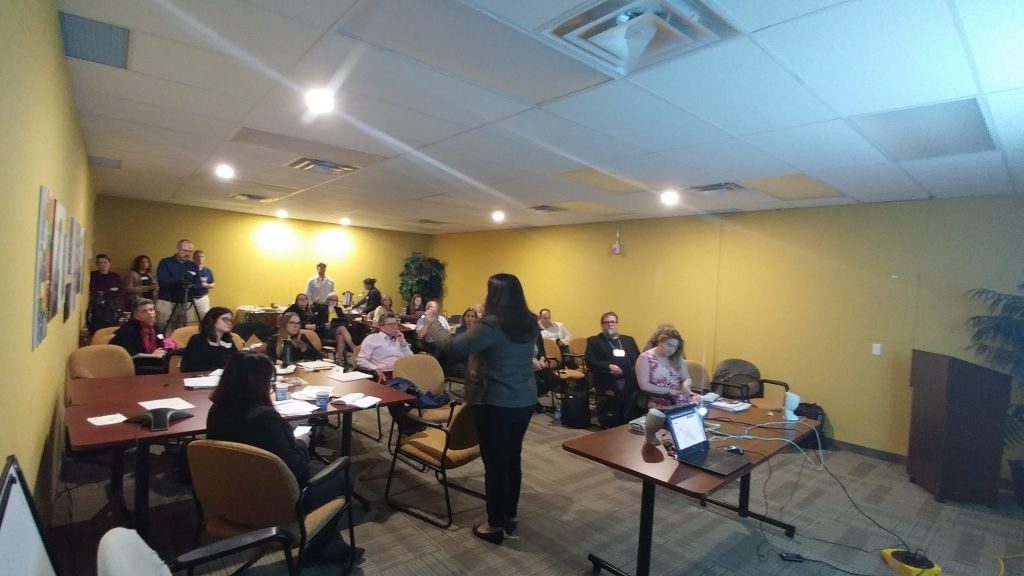
Knowledge Network for Student Well-Being (KNSWB)
Presented by Don Buchanan
www.knaer-recrae.ca/knaer-networks/well-being-network
The KNSWB is working on developing a shared language, which will connect and build relationships between educators and researchers. A specific example of where the KNSWB is stepping in is: challenging the “fixing the curriculum” mantra, which has been looked to as the ultimate answer for all shortcomings within the education system. However the ministry and educators are realizing that this method is not sustainable and are exploring more comprehensive and child-centered approaches such as improving well-being for students.
Mathematics Knowledge Network (MKN)
Presented by Donna Kotsopoulos
https://knaer-recrae.ca/index.php/knaer-networks/math-network
Many Ontarians from all age groups feel they are not good at math and yet the research shows that 94-96% of the population is capable of achieving very high levels of math. The MKN is trying to change people’s attitude towards math. One of the MKN’s biggest recommendations is to eliminate applied and academic streaming in schools. The MKN is also working closely with Indigenous individuals to improve math learning in Indigenous communities. A challenge the MKN is facing in trying to change attitudes towards math without pathologizing individuals and purporting a deficit model by focusing on something that needs to be “fixed”.
RESKN Equity and Inclusion Network
Presented by Noor El-Husseini
https://knaer-recrae.ca/index.php//knaer-networks/equity-knowledge-network-rsekn
RESKN has work happening across the province – 4 Quadrants. There are now six Priority Areas for the Equity and Inclusion Network (Anti-Racist Education, Newcomer and Refugee Education, Gender and Sexuality Education, Education for Students with Disabilities, Minority Language Education in Pluralistic Contexts, with a new foci being added recently on Income Inequality and Poverty which intersects with the other priority areas.) RESKN is suggesting that it is critical to acknowledge that the structures/systems we have right now were put in place with the intention of specific groups succeeding and other groups/identities struggling and not succeeding. They are exploring the many different factors that contribute to identity and how identities intersect to create multiple forms of oppression. RESKN stresses that solutions are not one size fits all and that they should reflect the needs and challenges of all identities present in all of our schools. They are also working on creating equity knowledge mobilization tools such as a “LGBTQ2 Guide” with pronouns. Creating these guides have been a challenging process because they are trying to ensure the materials are age appropriate and can cater to many different learning styles.
York University and Faculty of Education Summer Institute (FESI)
Presented by Vidya Shah
http://fesi.blog.yorku.ca/about/
This year’s Summer Institute will analyze the benefits and challenges of collecting identity-based data. Intersectionality is key in these conversations and it is important to learn about how students perceive themselves. Workshops and Panel presentations will explore how data can be used both to inform but also to skew perceptions of certain groups. In the past data has been hidden or buried. But without good data, we cannot make important decisions about how to provide equitable opportunities for all students. One outcome of the work of the SI is the creation of a GTA Data Hub – a public website that would house hundreds of available and searchable reports.
Canadian Centre for Policy Alternatives (CCPA) and Our-Schools Ourselves Publication
Presented by Erika Shaker
www.policyalternatives.ca/
See next section on Points of Collaboration for more details.